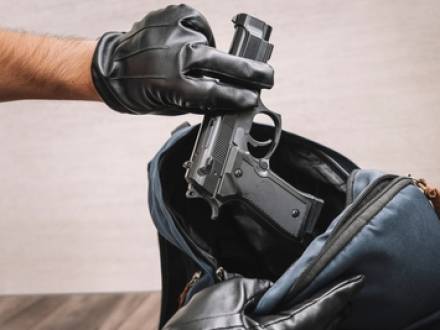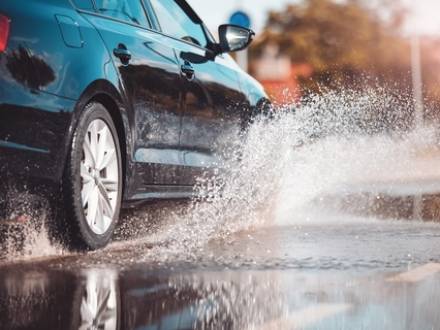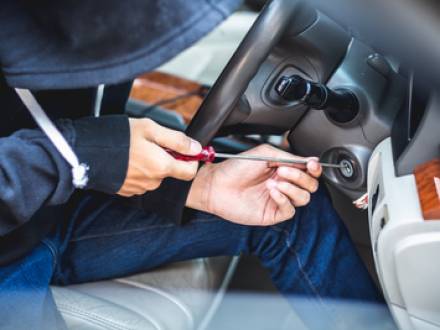Recent Blog Posts
What You Should Know About Illegal Search and Seizure in Illinois
 A common defense in criminal cases, particularly in cases involving drug crimes, is the violation of the defendant’s right to protection from illegal search and seizure. Law enforcement must adhere to strict protocols when searching a person or their property. Failure to uphold the legal standards can be highly detrimental to the prosecution’s case. If you have been charged with a crime, an experienced Kane County, IL criminal defense attorney can help you understand your constitutional rights and how they impact your case.
A common defense in criminal cases, particularly in cases involving drug crimes, is the violation of the defendant’s right to protection from illegal search and seizure. Law enforcement must adhere to strict protocols when searching a person or their property. Failure to uphold the legal standards can be highly detrimental to the prosecution’s case. If you have been charged with a crime, an experienced Kane County, IL criminal defense attorney can help you understand your constitutional rights and how they impact your case.
What Are the Laws Regarding Illegal Search and Seizure?
The Fourth Amendment of the Constitution states that you have the right to be secure from unlawful search and seizure of your person, house, effects, and papers. This means that law enforcement must have a valid warrant to search or take your property. There are only a few exceptions to the warrant requirement. For example, police can search if they have your consent, if evidence is in plain view, if you are already under arrest, or if there are exigent circumstances. Vehicles can also be searched without a warrant if there is probable cause.
Common Defenses Against Retail Theft Charges in Illinois
 Contrary to popular belief, retail theft, also known as shoplifting, can have serious consequences. If convicted in Illinois, you can face jail time, significant fines, and a stain on your criminal record. As you navigate the legal process, a Kane County, IL shoplifting attorney can help you understand your charges and the legal options available. Start by considering some potential defense strategies common to retail theft cases and how they may apply to the circumstances surrounding your arrest.
Contrary to popular belief, retail theft, also known as shoplifting, can have serious consequences. If convicted in Illinois, you can face jail time, significant fines, and a stain on your criminal record. As you navigate the legal process, a Kane County, IL shoplifting attorney can help you understand your charges and the legal options available. Start by considering some potential defense strategies common to retail theft cases and how they may apply to the circumstances surrounding your arrest.
Challenging Allegations of Retail Theft in Illinois
A strong defense is personalized to accommodate the unique situation that led to your arrest and the elements of the investigation that occurred afterward. When you work with a legal representative who is well-versed in how Illinois law addresses retail theft, your counsel will assess the case to determine how best to approach your defense. However, common strategies for fighting a shoplifting charge include:
Arrested for DUI with a Minor in the Car in Illinois
 In Illinois, driving under the influence (DUI) is already a serious offense, but a DUI while transporting a child drastically increases the severity of the penalties. If you have been charged with an aggravated felony DUI, you must understand the charges against you. An experienced Kane County, IL aggravated DUI defense attorney can help navigate your upcoming legal battle and build a robust defense.
In Illinois, driving under the influence (DUI) is already a serious offense, but a DUI while transporting a child drastically increases the severity of the penalties. If you have been charged with an aggravated felony DUI, you must understand the charges against you. An experienced Kane County, IL aggravated DUI defense attorney can help navigate your upcoming legal battle and build a robust defense.
What Does Illinois Law Say About DUI With a Minor in the Vehicle?
Illinois Vehicle Code statute 625 ILCS 5/11-501 states that driving with a blood alcohol concentration (BAC) of 0.08 percent or higher is illegal. Driving under the influence of drugs is also included in this law. The penalties are escalated if a child is in the car when the offense occurs. For a first offense, it escalates from a misdemeanor to a Class 4 felony for aggravated DUI if the child is injured. Even for a first-time offender, the court has little patience for cases that involve potential danger to a child.
Could I Have Committed Forgery in Illinois Without Realizing It?
 It is possible to unknowingly commit forgery in Illinois, but that does not immediately undermine the severity of the crime. Many different offenses fall under the umbrella of forgery and deceptive practices, and knowing exactly what you did wrong is the first step in building a defense. If you were charged with forgery and do not understand why, an Aurora, IL forgery and deceptive practice defense attorney can explain the allegations against you and how you may be able to challenge them.
It is possible to unknowingly commit forgery in Illinois, but that does not immediately undermine the severity of the crime. Many different offenses fall under the umbrella of forgery and deceptive practices, and knowing exactly what you did wrong is the first step in building a defense. If you were charged with forgery and do not understand why, an Aurora, IL forgery and deceptive practice defense attorney can explain the allegations against you and how you may be able to challenge them.
What Is Forgery Under Illinois Law?
Forgery generally refers to the act of changing or creating a false document to use it for deceptive purposes. That broad characterization can refer to a range of crimes, including everything from signing another person’s name on a legal document to generating a fake contract under someone else’s name. According to Illinois law, committing forgery is not limited to the act of creating or altering a document to make it look like someone else did it. It also requires delivering it when you know it is forged and using it to defraud.
What Is the Zero Tolerance Law for Underage DUI in Illinois?
 Underage drinking and driving laws, such as Illinois’ Zero Tolerance law, apply to anyone under the age of 21 caught driving under the influence of alcohol. According to the Zero Tolerance Law, someone can be charged with driving under the influence (DUI) and face severe penalties, even if that person is not above the legal limit of .08 percent BAC.
Underage drinking and driving laws, such as Illinois’ Zero Tolerance law, apply to anyone under the age of 21 caught driving under the influence of alcohol. According to the Zero Tolerance Law, someone can be charged with driving under the influence (DUI) and face severe penalties, even if that person is not above the legal limit of .08 percent BAC.
An Aurora, IL DUI defense attorney will explain the charge against you and help you build a defense to fight it. The court is sometimes lenient on first-time offenders, but having legal representation ensures you understand your rights and make smart decisions about your defense.
What Is Illinois’s Zero Tolerance for Drinking and Driving Underage?
The Zero Tolerance Law allows the court to charge someone under the age of 21 with a DUI for having even a trace of alcohol in their system. For a standard DUI charge applied to drivers 21 and older, the blood alcohol concentration (BAC) level has to be 0.08 percent or higher to be considered legally impaired. Under Zero Tolerance, the BAC level is 0.00 percent, and the investigating officers have the discretion, based on testing or refusal to test, whether to charge you with a Zero Tolerance violation.
Is Aggravated Speeding a Misdemeanor or a Felony in Illinois?
 Speeding is a leading cause of auto accidents in Illinois. Aggravated speeding is an additional level of reckless driving that can result in life-changing consequences for everyone involved. If you have been charged with aggravated speeding, how far above the speed limit you were going when the officer clocked your speed will determine how you are charged. To better understand the charges against you and your options for challenging them, you should speak to an experienced Aurora, IL criminal traffic violation defense attorney as soon as possible.
Speeding is a leading cause of auto accidents in Illinois. Aggravated speeding is an additional level of reckless driving that can result in life-changing consequences for everyone involved. If you have been charged with aggravated speeding, how far above the speed limit you were going when the officer clocked your speed will determine how you are charged. To better understand the charges against you and your options for challenging them, you should speak to an experienced Aurora, IL criminal traffic violation defense attorney as soon as possible.
How Is Aggravated Speeding Defined in Illinois?
Illinois Statute 625 ILCS 5/11-601.5 categorizes aggravated speeding as either a Class B or Class A misdemeanor. If you were driving between 26 and 34 miles per hour in excess of the speed limit when you were caught, you could be charged with a Class B misdemeanor. If your speed exceeded 35 miles per hour over the speed limit, the charge could be a Class A misdemeanor, which carries harsher penalties.
What Happens After a Third DUI in Illinois?
 Illinois has strict DUI laws designed to deter people from driving while under the influence of drugs or alcohol. First-time offenders are often treated more leniently but still face heavy penalties. If you have been charged with a repeat DUI offense and have concerns about what challenges are ahead, an Aurora, IL DUI defense attorney will walk you through the laws that apply to these cases and advise how you may be able to defend yourself.
Illinois has strict DUI laws designed to deter people from driving while under the influence of drugs or alcohol. First-time offenders are often treated more leniently but still face heavy penalties. If you have been charged with a repeat DUI offense and have concerns about what challenges are ahead, an Aurora, IL DUI defense attorney will walk you through the laws that apply to these cases and advise how you may be able to defend yourself.
What Are the Potential Penalties for a Third DUI in Illinois?
A third DUI conviction in Illinois is an aggravated DUI and often carries substantial penalties that vary depending on the circumstances of your arrest. If convicted, you would likely face a minimum of 90 days in jail and several thousand dollars in fines. When some aggravating factors are present, you could face a maximum of 14 years of incarceration and up to $25,000 in fines.
Fighting a Possession of a Stolen Vehicle Charge in Illinois
 Possessing a stolen motor vehicle is a serious violation that can result in harsh penalties with long-term consequences. If you were recently charged for this crime, seeking the counsel of an Elgin, IL stolen vehicle defense attorney would likely benefit you. You will need an aggressive approach to challenging the charges. In Illinois, your culpability is based not just on your actual possession of the vehicle but on your knowledge that the possession was unlawful. Working with an experienced attorney will help you find the best defense strategy for your case.
Possessing a stolen motor vehicle is a serious violation that can result in harsh penalties with long-term consequences. If you were recently charged for this crime, seeking the counsel of an Elgin, IL stolen vehicle defense attorney would likely benefit you. You will need an aggressive approach to challenging the charges. In Illinois, your culpability is based not just on your actual possession of the vehicle but on your knowledge that the possession was unlawful. Working with an experienced attorney will help you find the best defense strategy for your case.
What Illinois Law Says About Possessing a Stolen Vehicle
Illinois statute 720 ILCS 5/16-1 stipulates that the offense hinges on your knowledge and intention. This means that the prosecution will need to prove a few key elements. They may argue the following:
Can You Refuse a Field Sobriety Test in Illinois?
 If a police officer stops you for suspicion of driving under the influence (DUI), they will likely ask you to submit to standardized field sobriety and blood alcohol content (BAC) tests. Under Illinois law, you can refuse to participate in field sobriety tests, but that does not mean that you cannot be arrested for DUI. An Elgin, IL DUI defense attorney can help you understand the role of field sobriety tests in DUI arrests and how refusing could impact your case.
If a police officer stops you for suspicion of driving under the influence (DUI), they will likely ask you to submit to standardized field sobriety and blood alcohol content (BAC) tests. Under Illinois law, you can refuse to participate in field sobriety tests, but that does not mean that you cannot be arrested for DUI. An Elgin, IL DUI defense attorney can help you understand the role of field sobriety tests in DUI arrests and how refusing could impact your case.
What Are Field Sobriety Tests?
There are three types of standard field sobriety tests:
-
Horizontal gaze nystagmus: The officer will ask you to follow an object, usually a pen, with your eyes to test for an involuntary jerking of the eyeball that increases with alcohol consumption.
-
Walk and turn: The officer will ask you to stand on a line, walk heel-to-toe, turn, and walk back to observe your balance.
How Does Illinois Law Define and Penalize Reckless Driving?
 Illinois law defines reckless driving as "willfully or wantonly disregarding the safety of other persons or property while driving." The definition is broad, leaving it open to many traffic violations, and the defenses in these cases vary drastically. Facing a reckless driving charge can be intimidating alone. An experienced Aurora, IL traffic violations attorney can help you understand the meaning of a reckless driving charge and walk you through the legal process.
Illinois law defines reckless driving as "willfully or wantonly disregarding the safety of other persons or property while driving." The definition is broad, leaving it open to many traffic violations, and the defenses in these cases vary drastically. Facing a reckless driving charge can be intimidating alone. An experienced Aurora, IL traffic violations attorney can help you understand the meaning of a reckless driving charge and walk you through the legal process.
What Constitutes Reckless Driving in Illinois?
In Illinois, the arresting officer has the discretionary ability to determine whether your actions constituted reckless driving. The law does not name specific actions, but some common examples of "willful or wanton" disregard for the safety of others include:







